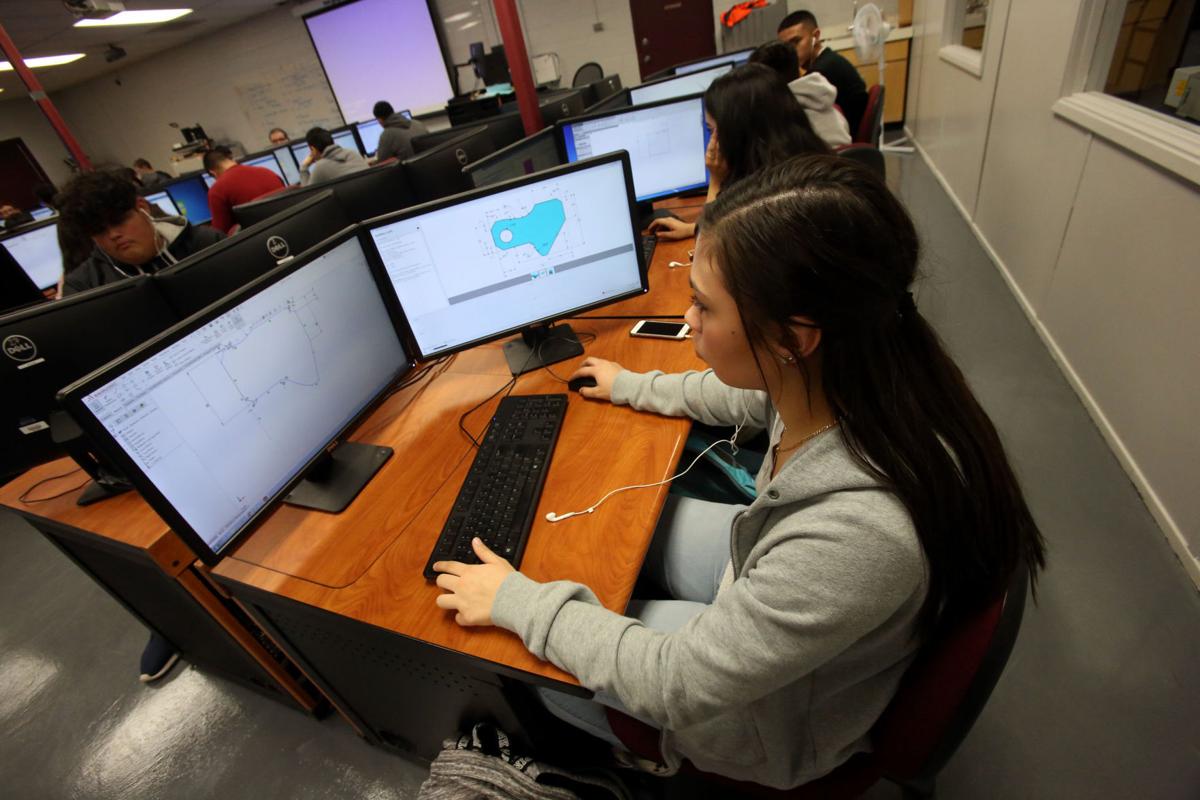Southern Arizona technology investors and some of the state’s biggest high-tech companies got what they wished for in the waning hours of the Arizona legislative session last week.
But lawmakers rejected proposals to add funding to the state’s high school Joint Technical Education Districts.
Two bills aimed at spurring technology investment in the state passed and were sent to the Gov. Doug Ducey last week, just before final adjournment and after stalling earlier and getting new life as strike-everything amendments.
It’s unclear whether Ducey will sign the bills, and a gubernatorial spokesman declined to comment on his stand on the legislation.
“ANGEL” INVESTORS
One successful bill allows the Arizona Commerce Authority to authorize an additional $10 million in tax credits against certain investments made in qualified small businesses through fiscal year 2021.
The tax credits are used by “angel” investors — individuals who are qualified to make private-equity investments by virtue of their high net worths or income.
An initial $20 million in angel credits was used up by mid-2015, and angel investments have fallen as a result, backers say.
Curtis Gunn, chairman of the Tucson-based Desert Angels investors group, said the measure is an important economic driver, noting that since the program’s inception, the $20 million in angel credits has produced more than $44 million in tax revenue, more than $340 million in follow-on investment and all told, an estimated $1.4 billion of economic output.
“I am confident that the recapitalization of the program will continue to show outsized results and will spur significantly more investment in Arizona companies,” Gunn said.
JOBS AND RESEARCH
The Legislature also passed a measure that benefits major Arizona tech employers including Raytheon Missile Systems and Intel, which both plan to expand their workforces in the next few years.
The legislation, SB1416, continues a state incentive program for companies that create well-paying jobs, keeps state research and development tax credits at current rates and allows manufacturers to take additional tax depreciation on their properties.
The bill maintains through 2022 the current R&D tax credit rate of 24 percent for the first $2.5 million of investment and 15 percent for investments beyond that level.
The credit rate was scheduled to drop to 20 percent and 11 percent, respectively, in the 2018 tax year.
However, lawmakers balked at a provision in the original bill that wold have allowed companies to get refunds for unused tax credits. The idea of the state writing checks to refund the tax credits led to the bill’s initial defeat in the House in March before it was revived and substituted for an unrelated bill.
The Arizona Technology Council, the state’s biggest technology industry group, had lobbied to extend the R&D credit and allow carryover credits to be refundable.
The jobs incentive program, the Quality Jobs Tax credit, has been offered to employers who make a $5 million investment in urban areas and create a minimum of 25 jobs paying at least the county median, or $1 million in rural areas to create at least five qualifying jobs.
Lawmakers extended the program through fiscal 2025, while creating a tiered eligibility model that allows companies with smaller capital investments to reap the credits if their new jobs are higher-paying.
For example, a company could qualify for the credits with a capital investment of as little as $500,000 at an urban site if the jobs paid twice the county median, or as little as $100,000 at a rural site with the new jobs paying at least 150 percent of the county median.
The job credits could benefit Raytheon, which last year announced an expansion that could add about 1,900 jobs in Tucson in coming years and Intel, which plans to spend $7 billion to complete an advanced computer chipmaking plant in Chandler that was mothballed before it opened.
Ducey spokesman Daniel Scarpinato wouldn’t comment on the governor’s position on the tax-incentive bills, noting that Ducey is scheduled to return from travel Thursday.
JTED NOT SO MUCH
While investors and major employers won tax breaks, backers of the state’s Joint Technical Education Districts were unsuccessful at getting more funding for the programs.
The Legislature and Ducey have ignored pleas to restore funding for ninth-grade students to participate in JTED programs, which range from auto repair to cosmetology to precision machining.
Approving the governor’s JTED budget line, lawmakers also cut $1.8 million in funding for JTED participants to stay in the program after they graduate from high school, though $1 million was set aside for scholarships for those students.
JTED is strongly supported by local tech manufacturers in Tucson, where a cadre of small fabrication shops support aerospace and other local industries.
Saying they couldn’t find enough skilled workers a few years ago, local machine shops formed the Southern Arizona Manufacturing Partnership, which supports JTED and Pima Community College internships.
JTED officials and industry partners say starting students in technical programs as ninth-graders is important to give them exposure to more career choices and more time to complete programs that will give them a marketable skill by the time they graduate.
Tina Norton, assistant superintendent of the Pima County JTED, said the decision not to restore freshman JTED funding, though disappointing, was not unexpected.
“We knew it would be a long shot this legislative session,” Norton said. But we feel there is support to restoring funding at some point in time, when there is more money available.”





